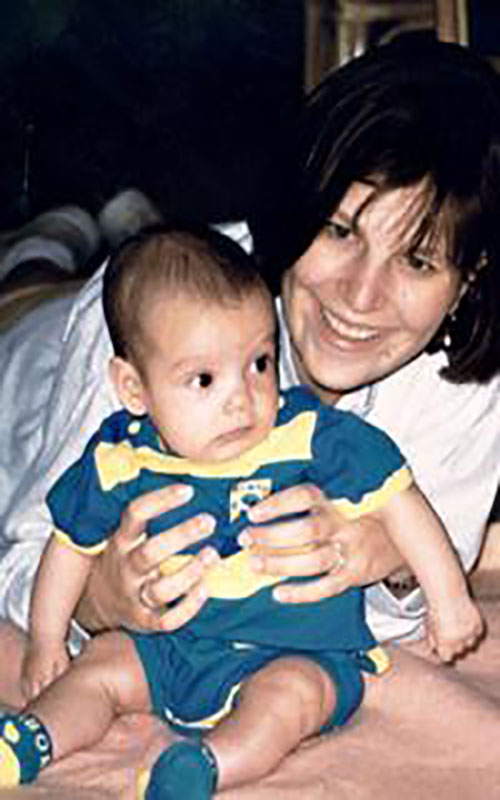Debra Beth Lobliner Graduate Fellowship in Developmental Psychology
Debra “Debbie” Beth Lobliner was born on July 29th, 1969 in Houston, Texas, to Sanford and Joyce Lobliner. She had two older sisters, Mindy and Pam. Debbie was a bright and curious child, easily excelling throughout her early academic life. From early on, Debbie asked questions of fundamental importance to developmental psychologists and by age four wondered how her brain knew that she was supposed to walk and talk.
She graduated from Robert E. Lee High School in May of 1987 and enrolled in The University of Texas at Austin in the fall. While an undergraduate, Debbie worked on research with several faculty members. She was accepted into the Psychology Honors Program, and completed a thesis examining the relationship between cognition and personality. She graduated in December of 1990 with several academic honors, including high honors in psychology.
Debbie’s interest in child psychology had been sparked by a course on infant cognition with Dr. Les Cohen, and she applied to graduate programs in developmental psychology for fall 1991. On the basis of her stellar record, she was admitted to the Developmental Psychology Program at UT. She was also awarded a University Fellowship, the University’s most prestigious form of financial support for graduate students.
Debbie accepted the offer and began to work with Dr. Rebecca Bigler on research examining children’s gender and racial stereotyping. She was interested in examining the origins and consequences of social stereotyping and discrimination, with the goal of applying her research to the development of interventions aimed at reducing stereotyping and prejudice among children.

Debbie proved to be a model graduate student, performing at or near the top of each of her classes and excelling in all facets of research. She received her master’s degree in December of 1993 for research examining the role of categorization in stereotyping. Other research examined the effects of stereotypic attitudes on memory processes, and children’s stereotyping on the basis of ethnicity. She presented several of these papers at national conferences on developmental psychology.
In addition to research, Debbie excelled in teaching. She taught her own large section of Introduction to Child Psychology. By all accounts, she was a dedicated and inspirational teacher. Debbie’s energy and joy for research, teaching, and scholarship made her a role model and leader among her fellow graduate students. She was a warm and generous classmate and she became an especially beloved member of the Developmental Psychology Program.
In the spring of 1994, Debbie was awarded a second Graduate Fellowship. The Fellowship would have supported her while she worked on her dissertation, a study examining how children develop gender stereotypes of occupations titled, “The Formation of Gender Schemata in Children.” Tragically, Debbie died on July 5th, 1994, from liver failure caused by Wilson’s Disease, a genetic disorder that strikes an estimated 1 in 80,000 individuals.
Debbie’s enthusiasm, intelligence, and sense of humor were a delight to all of those who knew her. She was committed to the principles of honesty, integrity, and social justice, and more importantly, these values guided her behavior. She strove to help others both inside and outside the classroom, volunteering her time to tutor students and teach parenting skills to teenage mothers. She was also a loving and supportive partner to her long-time boyfriend Alan Cross. Debbie had a very special relationship with her niece, Rebecca, and was determined that Rebecca grow up with as few gender stereotypes as possible.
The Debra Beth Lobliner Fund, established by her parents, honors Debbie’s spirit and memory by facilitating the pursuit of two of her ideals — excellence in scientific research and participation in the scientific community by individuals from diverse and underrepresented backgrounds.
How to Give
Learn more at giving.utexas.edu
Search Endowments
Look for inspiring stories
